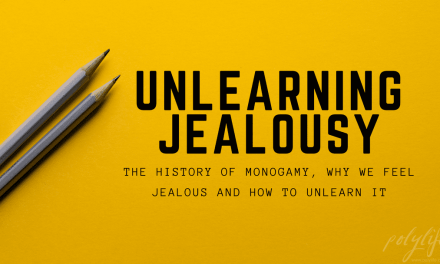If you spend long enough around internet forums and facebook you will be left in no doubt about the inherent evils of hierarchy in polyamorous relationships. Much like the much feared, unicorn hunters – hierarchy in a relationship is seen as an ugly remnant of our pre awakened poly consciousness. As poly people who are ideologically predisposed to not be defined by other people’s expectations of what our personal connections should look like we definitely spend a lot of time exclaiming what we are not or what poly isn’t to all those who will listen. I am also well aware of the irony of that statement as I write this article.
So lets for the purpose of this article stick to our discussion around hierarchy. However, you will want to check our other articles on ‘ethics’, ‘unicorn hunting’ and ‘what is your TYPE of poly?’ – I will link to these later and you will see them posted on Polylife’s Facebook page.
So Hierarchy, is it bad?
If you want to stop reading now and just want the short answer then here it is: Hierarchies in relationships are not bad or good they are inevitable.
Ok move on with your day. However, the answer is not a meme and it can’t be explained as simply as that.
If you want more detail then here it is.
Hierarchies are biological, we use them every day to make sense of our world and our existence. Specific to this conversation, importantly they also govern our relationships. Hierarchies are how we establish value with the world around us. We use them constantly and most of the time we take them for granted.
Our lives and much of the meaning we glean from our lives are governed by hierarchies.
Here is a simple example. Food. We place all the food we eat including the availability of it, how it tastes, how healthy it is and how much it costs in multiple hierarchies and the evaluation of a food item in that hierarchy determines when, if and how we eat it. No hierarchy? You would eat anything at any time for any reason without qualification. Even the food/not food hierarchy is very important to us ( i say as I gnaw on the end of a pencil ).
If you accept this then you also accept that hierarchies are unavoidable in everything we do, including thinking about our relationships.
This is going to be hard for the non-hierarchical poly people to hear but they also make constant use of hierarchies. The simple act of valuing ‘non-hierarchical’ relationships over ‘hierarchical’ ones is hierarchical in itself.
So why the big kerfuffle?! Simply, the by-product of being a high ranking member of a hierarchy is privilege and choice. When exercised poorly this can lead to an imbalance of power in relationships, disenfranchisement, and disadvantage. They are not by nature bad – they are a value ordering system, however, two things associated with hierarchies that may create harmful outcomes. One, depending on your status in a particular hierarchy you may enjoy ‘privilege’ over other individuals because of your status or rank. That’s ok I am sure you probably earned it and it is ok to enjoy the fruits of your hard work. The second aspect hardly ever talked about or understood is ‘motility’ the ability for an individual to move up (or down) in value within the hierarchy. If you are stuck in a hierarchy with no motility (you can’t or are prevented from changing your status or value) you can be fairly sure the hierarchy has become tyrannical and therefore is of concern.
Ok, so how does all this apply to Polyamory? Hierarchy is often singled out as the cause for why a particular relationship fails to succeed. For example, an existing couple (EC) of 5 yrs with 1 young child and a house mortgage forms a triad with a solo poly person (SP). Some of the concerns here maybe around the hierarchy of the existing relationship and that SP will be excluded because of the Hierarchy.
Well, let break it down in real terms. Hierarchy exists. Despite claims that all involved don’t accept hierarchical polyamory, there is no denying that a hierarchy (in fact several) exist. Simply by nature of the different history and relationships and different types of connections that exist, there are different value propositions across different roles.
EC have been together for a long relationship history. They have children over which they share joint decision making. They have financial commitments together. These connections are not yet shared with SP, and may never be. Regardless, a hierarchy of value exists, participants in the relationship have a different status. That’s ok. That simply mirrors what happens in our broader relationships. Our non-romantic friendships may be very diverse and there will be a hierarchy at work depending on how we are feeling and the value we place around hanging out or catching up with certain family and friends. This very normal, and on the flipside it is how we place value on our family and friends over the value we place on every other unknown person in the world. We do it all the time, its part of every person’s life.
So where is the concern? The concern comes in a poly relationship when one partner may exercise their privilege (power) in the relationship to prevent the motility of another partner. The fact that a particular partner has more privilege than another in the relationship is not the issue. The exercising of that privilege to prevent another partner from gaining more privilege in the relationship or increasing their status is when it becomes negative and tyrannical.
Here are some simple tests to see if the Hierarchy in your relationship is unhealthy:
- Does one partner exercise their privilege over the choices of the other partner/s?
i.e. are partner’s actions and choice limited by the higher status realtionship? - Does one partner exercise their privilege to prevent the motility of the other partners?
i.e. can the new relationships grow to the same status as the existing one?Let me also just note: It is important to consider that new partners may not want the same status and depth of relationship responsibility that comes with being motile in the existing relationship hierarchy. So are happy and content with their current position.
As long as everyone’s needs are met, and that privilege is only exercised to support the relationship, and there is an awareness and agreement by all partners as to when that privilege is exercised eg children then hierarchy does not need to be an issue, certainly you can’t avoid it so it best to understand it and work with it to ensure you manage it successfully for the benefit of everyone you care about.










Recent Comments